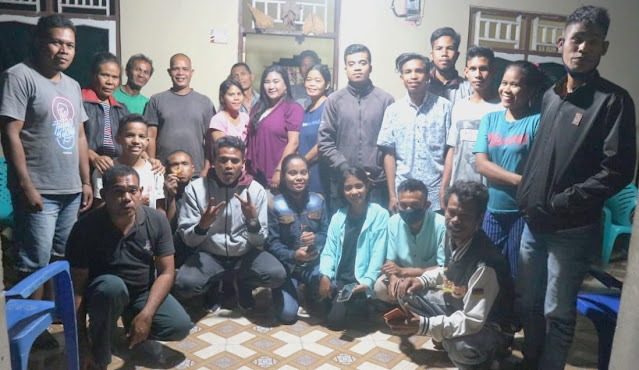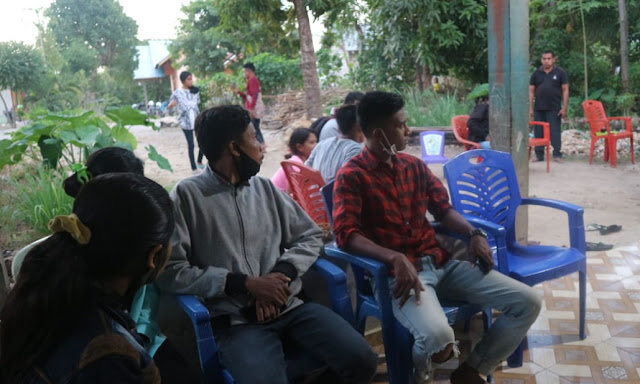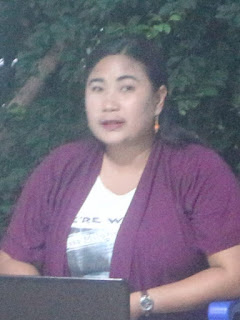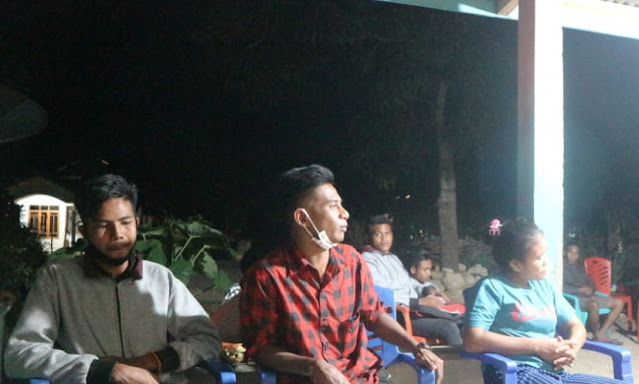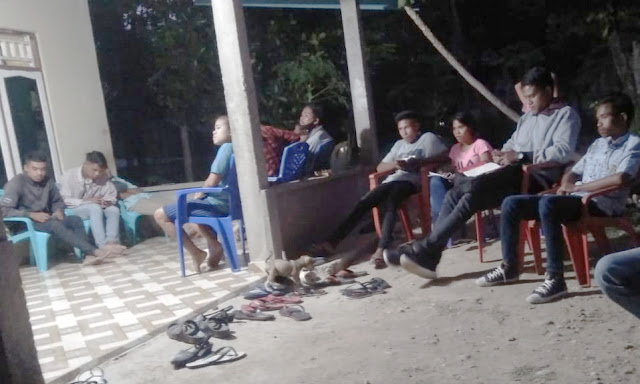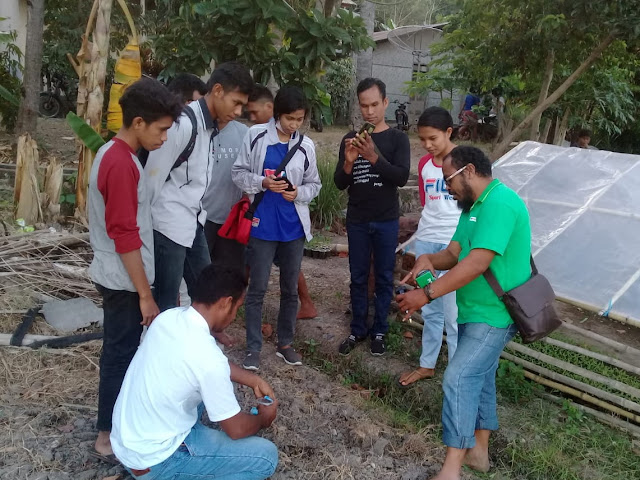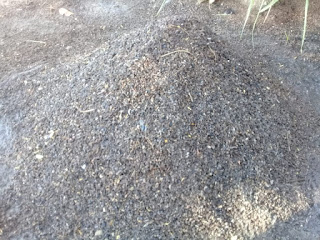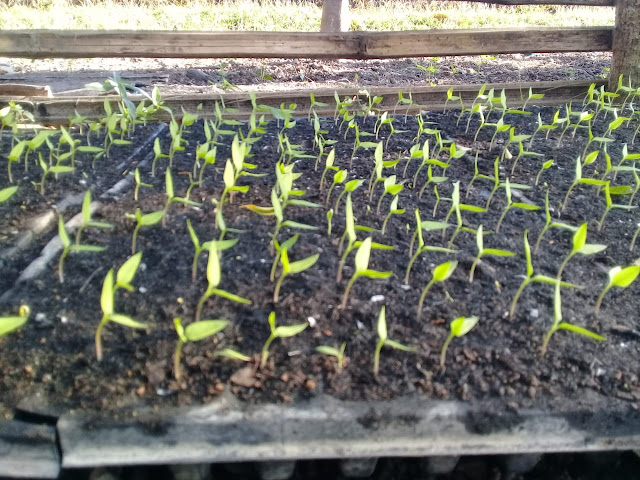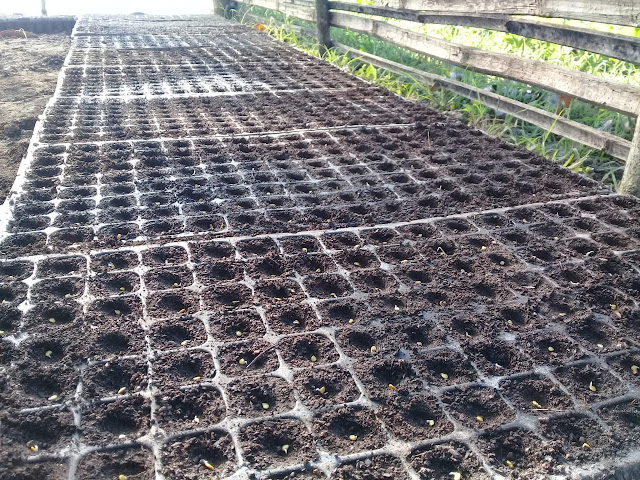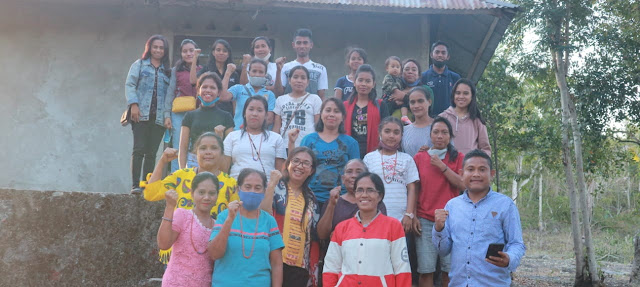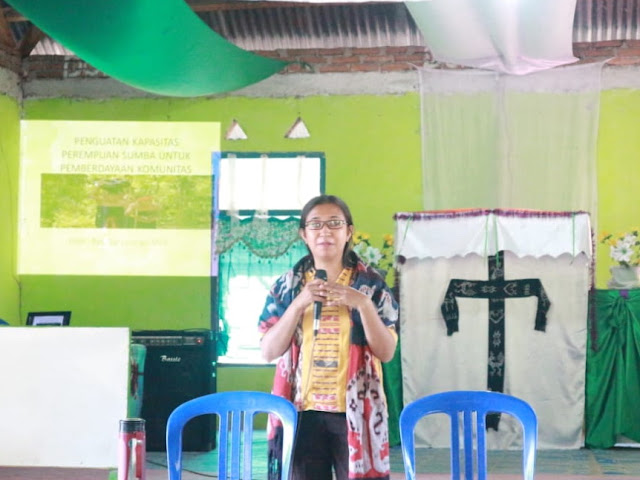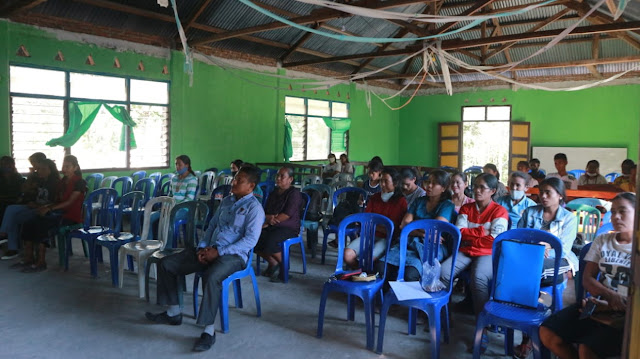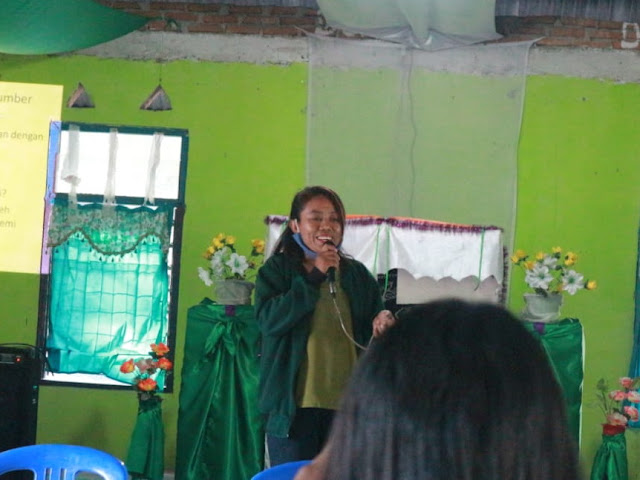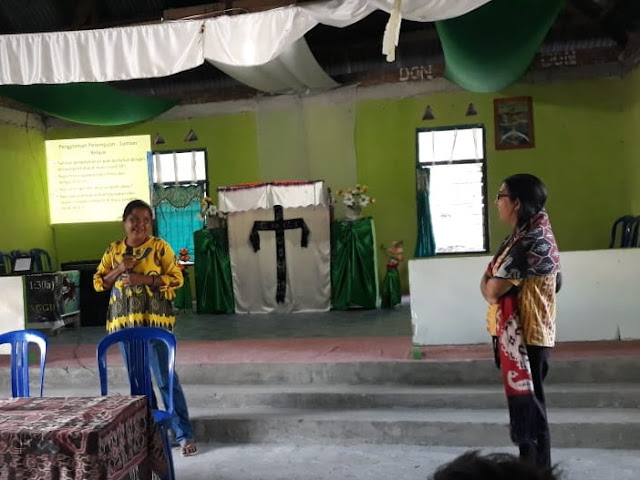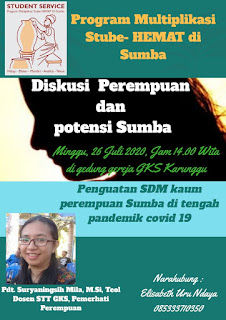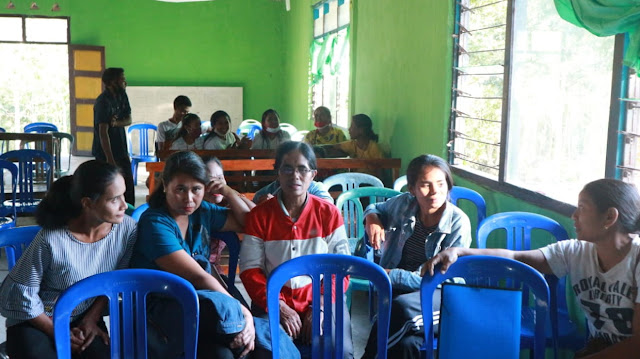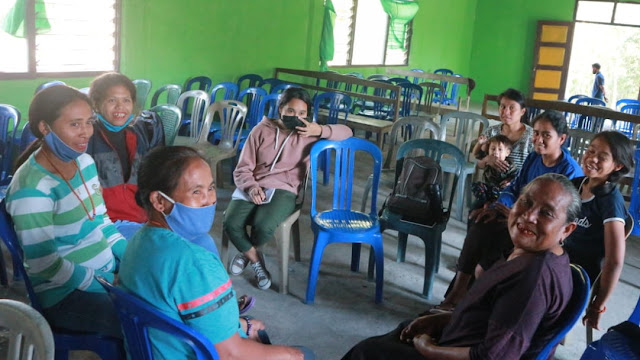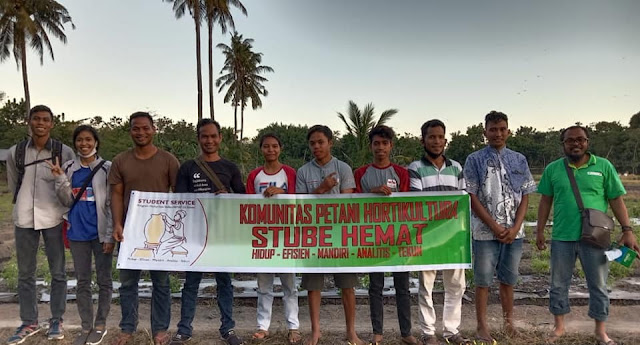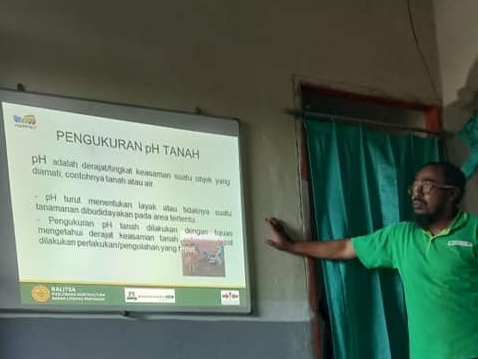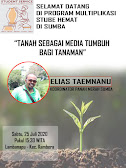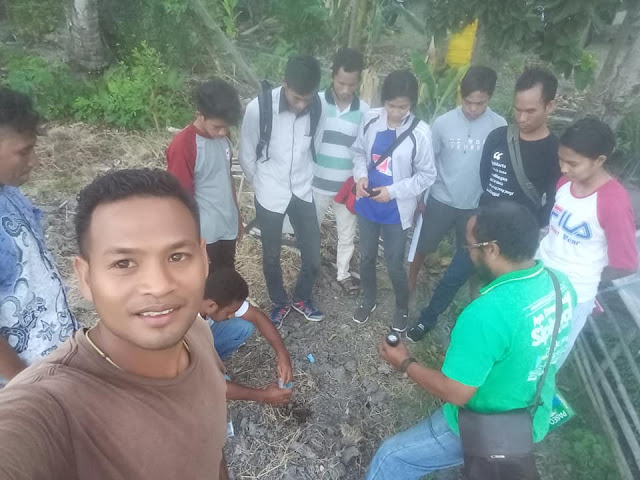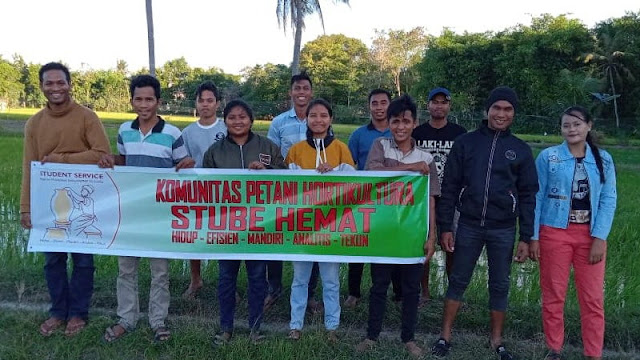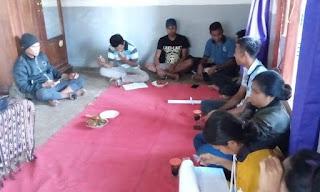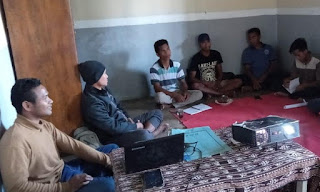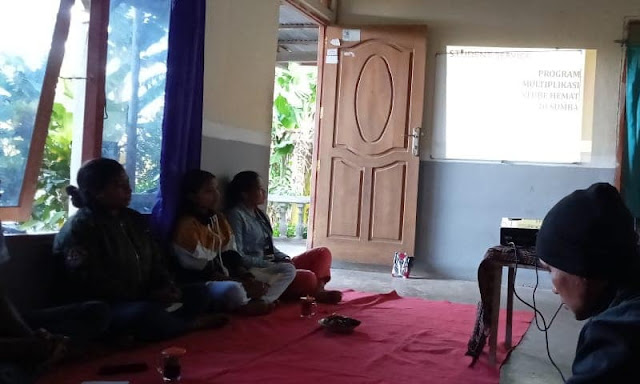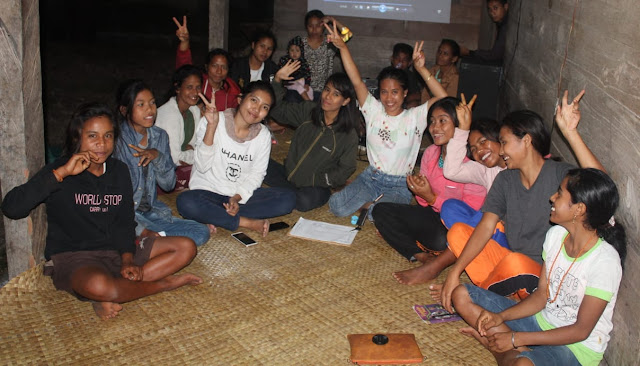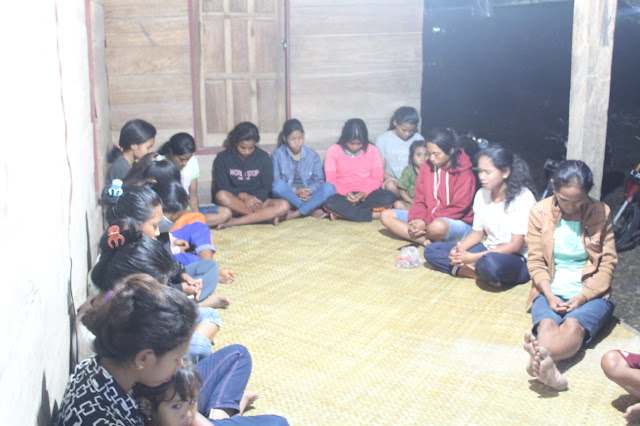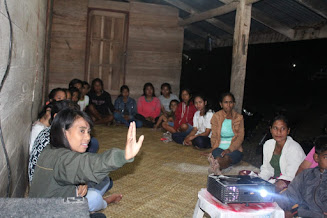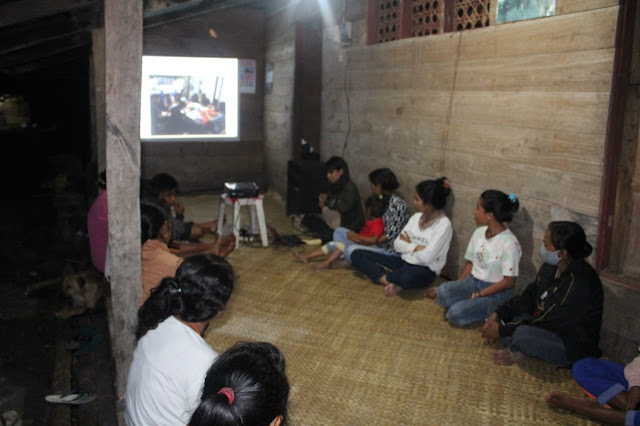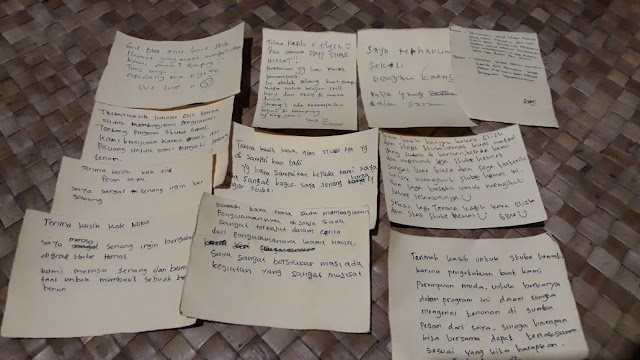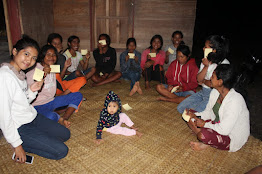Finding Out Solutions for Pigs Massive Death
Thursday, 30 July 2020by Apriyanto Hangga, A.Md
Pig farming is a primary activity done by people in Sumba based on their traditional life. Raising pigs is not their main work but a complementary because pigs are needed for the people of Sumba related to customs, burial, marriage or any other occasions.
Currently, the people of Sumba are devastated by disease that attacks pigs, namely Hog Cholera and the ASF virus. Thousand of pigs in Sumba suddenly diedy and cannot be overcome until now. The people seemed to give up with the condition and did not know what to do to overcome it.
For this reason, the Multiplication of Stube HEMAT in Sumba especially the Livestock Program provided assistance and training for students, church youth and farming communities who suffered from the impacts of this disaster. The discussion was so interesting because it fitted with the context of reality in the society. The participants of the discussion on Pig Farming (29/07/2020) exceeded the target from 25 to 43 participants, and the estimated time was 3 hours expanded to 5 hours due to their high enthusiasm. Moreover, the resource persons, Yessy Tamu Ina, S.Pt, M.Si, a lecturer at Faculty of Animal Husbandry of Unkriswina Sumba and field assistants team for small farmer community, answered all participants’ questions and curiosity.
The material presented by the source persons discovered many types of diseases that often attack pigs and it needed to be known by the breeders, such as: Vitamin A deficiency, Anemia, White Diarrhea, Hog Cholera, Agalactia, Smallpox, Rounded worm, Pneumonia and African swine fever (ASF) virus. Hog Cholera is a disease that often attacks pigs but this disease can be overcome by vaccine, so it is not too frightening for the farmer. If the livestock is routinely vaccinated, the livestock is guaranteed safe. However, the most dangerous is the African Swine Fever (ASF) virus. This virus is very dangerous because of its fatality and possibly kill all pigs around the affected area. It is possible this type of virus caused thousands and even tens of thousands of pigs throughout Sumba died. The worst news is the vaccine has not been invented yet.
The discussion led to several conclusions: Every breeder must keep the cage clean, Maintain the nutrition balance for the livestock, Having routine vaccination per 6 months (1 syringe per pig), If pigs are found sick or died, report to the agency immediately, If pigs are found sick, they should be separated from others. If you consume pork, only the leftovers with contain pork can be given to pigs.
During the discussion, the participants were actively involved by asking questions and conveying their experiences because the topic talked about the actual problem in Sumba and closely related to their daily activities. ***
Soil, Media for Growing Crops
Monday, 27 July 2020by Frans Fredi Kalikit Bara
Soil is a natural media needed by farmers to grow crops. The first step that must be done by farmers before carrying out the planting process is preparation of the planting fields. In this process, the degree of soil acidity must be measured to ensure the level of soil fertility at certain fields. The good soil pH ranges from 6,5 to 7,5. Meanwhile, the soil at level six is not good media for growing plants. Soil as a growing media like a bed for plants to provide comfort, if the bed is uncomfortable then the plants will not grow well.
There are several characteristics that will be shown by plants if the soil is acidic or neutral pH. The characteristics of plants that grow on acidic soil are: (1) the plant will be stunted because the root growth is stunted, so unable to absorb nutrients optimally; (2) the leaves’ surface will looked pale yellow because the nitrogen element in the soil cannot be absorbed, (3) the level of immunity to pests and diseases will weaken so that the plant is vulnerable to disease. (4) production yields will decrease and even crop failure.
Whereas the characteristics of plants that are in neutral soil are: (1) The condition of the plant looked greenish because of the optimal absorption of nutrients, (2) the condition of roots and stems looked solid, the leaves are wide, thick and dark green, (3) have maximum production level, and (4) have a high level of immunity against pests and diseases.
Several strategies that can be carried out by farmers if the soil acidity is below six are as follows (1) Do crop rotation with different types of plants or families, in order to neutralize the soil pH condition, or in other words, restore the macro and micronutrients of the soil that have been absorbed. An example of crop rotation with different families is the first phase of the fields is chilies, then in the following phase is legume crops; (2) Have agricultural lime or dolomite. The sown of dolomite on acidic soil will restore the soil into neutral condition; (3) Add the acidic soil with macronutrients, such as phosphate. It enables plants to grow in abnormal soil pH condition by stimulating the growth of new roots and maximize the stem growth, so that the crops are able to absorb nutrients for their growth and to produce optimally. ***
Women and Potency of Sumba
Monday, 27 July 2020by Elisabeth Uru Ndaya, S.Pd
Women are the pioneers of change, and this can start from family to community. They have extra inner power to survive in crises including the pandemic of Covid-19. Evidently many women are looking for alternative business during the pandemic for their families to survive.
On Sunday, July 26, 2020 in one discussion held by Multiplication of Stube HEMAT in Sumba, Rev. Suryaningsih Mila, M.Si.Teol, STT GKS lecturer said that basically men and women have the same responsibility to fulfill family needs. However, women (wives) often bear more burden than their husbands because they have to work both in domestic and public spaces. In Indonesian context, East Nusa Tenggara, especially Sumba, women are the guardians of the family granary, the manager of the family economy.
The discussion itself was attended by 30 female participants, promoting women and the potency of Sumba. Rev. Suryaningsih greatly appreciated the struggle of Sumba women generally. "Who cares the most for the domestic needs and the children? When the harvest season comes, who often takes a bus into town and sits on the storefront to sell?" she asked. Simultaneously, the participants answered ‘women’. Furthermore, she identified the strength, potencies, and skills of women.
In many cases, women are tougher, conscientious, diligent, responsible, sensitive, caring that become the power of women to develop their potencies. They are also more resilient, not easy to give up and creative to deal with economic crises. In the middle of the discussion, participants were divided into small groups to share experiences. Iche Hana, a single young teacher at junior high school, shared her experiences during pandemic, she develops her other potencies, by weaving and selling cakes. Adriana, a housewife, told her experience when she wanted to sell corn she had to take a bus or truck to Waingapu. Arriving the town, she walked around to sell corn, and at night she kept selling corn along the sidewalk. Yohana, a housewife, said, “I once sold cakes in Waingapu, but because of Corona I was chased by the civil service police, and no cakes sold. I cried, finally I gave all cakes to my neighbor to be owed, but I received no payment until now. The rest of the flour rotten and I threw it away to feed pigs”. They hope to be involved in this multiplication program.
Ps. Suryaningsih Mila, M.Si.Teol encouraged the participants and gave overview that Sumba women face many obstacles. The patriarchal culture affects the power relation between men and women, the dominance of men as the successors of the family tends to marginalize women’s role, which put women as domestic (household) workers and underestimate the strength and potency of women. The relation of power also weaken the position of women, creating violence and exploitation of women and girls. Thus, many women do not dare to explore their potency, the cultural and natural potency around them. Women become less confident and more dependent on men.
Hopefully, through this empowerment program, Sumba women can contribute more with their strong will to bring out their potency and develop potencies around them for the common good. They should learn more to equip themselves with knowledge, important information and the skills. As a form of their follow-up, the women's community started to prepare vegetable beds equipped with a fence and nursery garden for natural dyeing material of their weaving. ***
The spirit of farming versus Corona virus
Sunday, 26 July 2020by Frans Fredi Kalikit Bara
On March 2, 2020, the virus has detected to get into Indonesia with two positive cases. Based on Kompas news (Wednesday 29/07/2020), The Covid-19 Handling Task Force confirmed positive cases reached 104.432 patients. The number of patients infected by this virus is increasing day by day and it is not known when this outbreak will end. The infection of Corona virus creates many changes in most aspects of life. Many people lost their jobs, many businesses got bankrupt, many people suffered from stress due to limited space and the country's economic condition led to be deficit.
The Stube HEMAT Horticultures Farmers Community convince ourselves that we are stronger than the Corona virus. This statement is one of our motivations to eliminate fear. The virus is not the barrier for young people to remain productive, even in the limited mobility. In the current condition, food is one of the basic and primary needs for human to survive. The Ministry of Agriculture itself recommends maintaining the production of agriculture or, if possible, the total output of agricultural products must be increased.
Indirectly, it opens opportunity behind the threat of the Corona virus, agricultural business become the flagship business because it plays important role in sustaining food needs for human to survive. The Community sees such condition as the responsibility of young people to take the baton of agriculture in Indonesia and the business opportunity for young people. Agricultural business is one business that will never die, because it is directly related to basic human needs.
By following the health protocol set by the government, Sumba youth, especially the community, will continue to work and to foster a farming spirit that is stronger than the Corona virus. ***
Agriculture: The Land is Like Mother, so Respect Your Mother
Tuesday, 14 July 2020by Frans Fredi Kalikit Bara
Women Empowerment: The cultural movement and the potency of Sumba women
Monday, 13 July 2020by Elisabeth Uru Ndaya, S.Pd
The presence of Multiplication Program of Stube HEMAT in Sumba answers and helps young Sumba youth to develop and become qualified young people. Especially for young women of Sumba with various problems and injustices that they face, will help them open their mind to keep fighting for their existence as a women who deserve fair treat like the others. In addition, the program also helps them to take advantage of the world-blooming local potencies, such as the use and management of Sumba woven cloth.
On Saturday, July 11, 2020 became the beginning of our activity with women in Tanatuku village, Nggaha Ori Angu district, East Sumba regency, East Nusa Tenggara province. It was attended by 18 female participants and their attendance lifted the spirit of Elisabeth Uru Ndaya as a Multiplicator of Stube-HEMAT in Sumba to disseminate and deliver materials related to the program. The participants were very enthusiastic listening to every material delivered. Most of them are young women who have graduated from high school and did not continue their study in university. There were also several students who are currently and have completed their studies in universities.
The meeting started around 7 P.M WITA (Central Indonesian Time) and it was opened with a prayer by a young gospel teacher, Yuni Njurumbaha. After that, the introduction of Stube-HEMAT and the multiplication program including the aims and objectives of the women's empowerment program through Sumba woven cloth. The following session asked the participants to write their impressions and responses toward the Stube-HEMAT program that will be implemented there. Their responses can be seen from the metaplan they wrote. They were very proud that Stube-HEMAT came for them and they were so much encouraged to join the women's empowerment program.
At the end of the meeting they committed to attend the following discussion on the upcoming July 2020. They agreed to meet again in the discussion to learn the history and origin of Sumba woven cloth. Hopefully, the presence of Multiplication program of Stube HEMAT in Sumba runs well, will be useful and the women in Sumba will be more productive. ***



